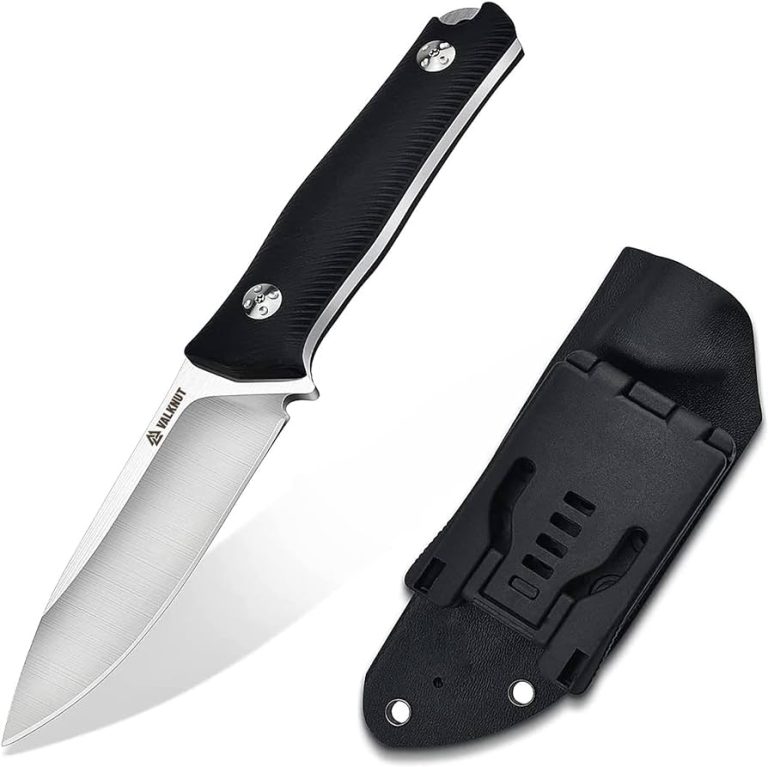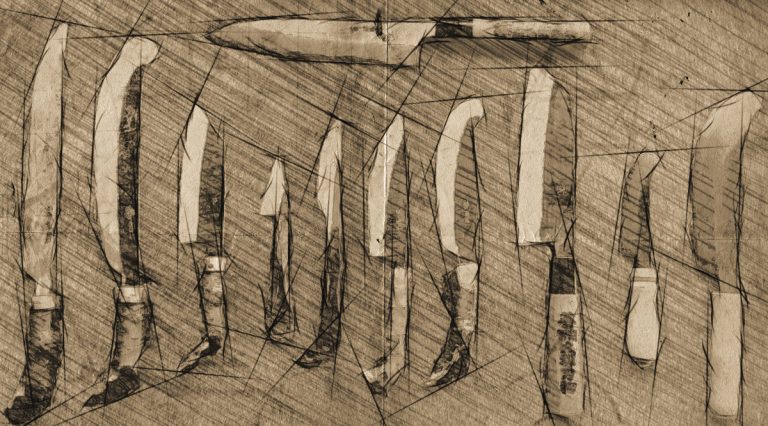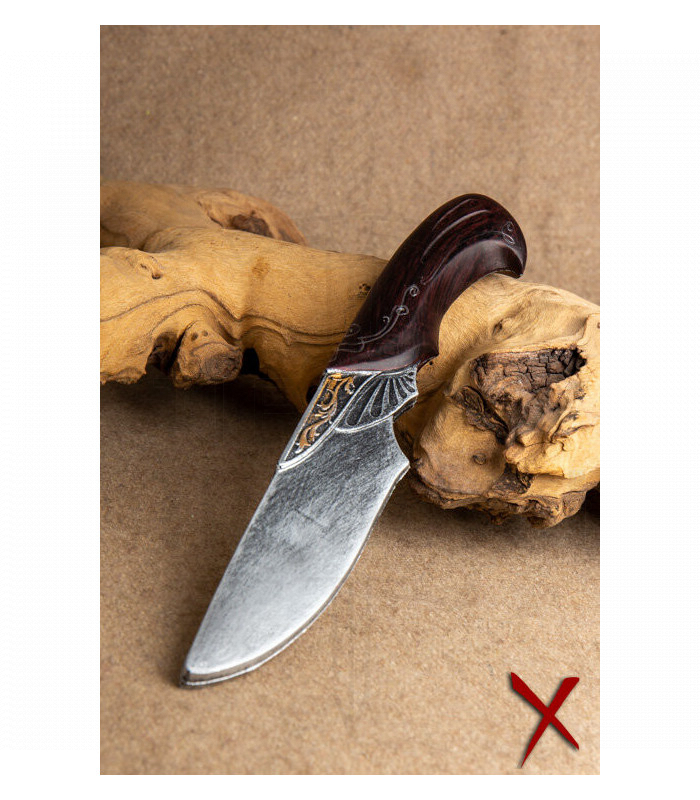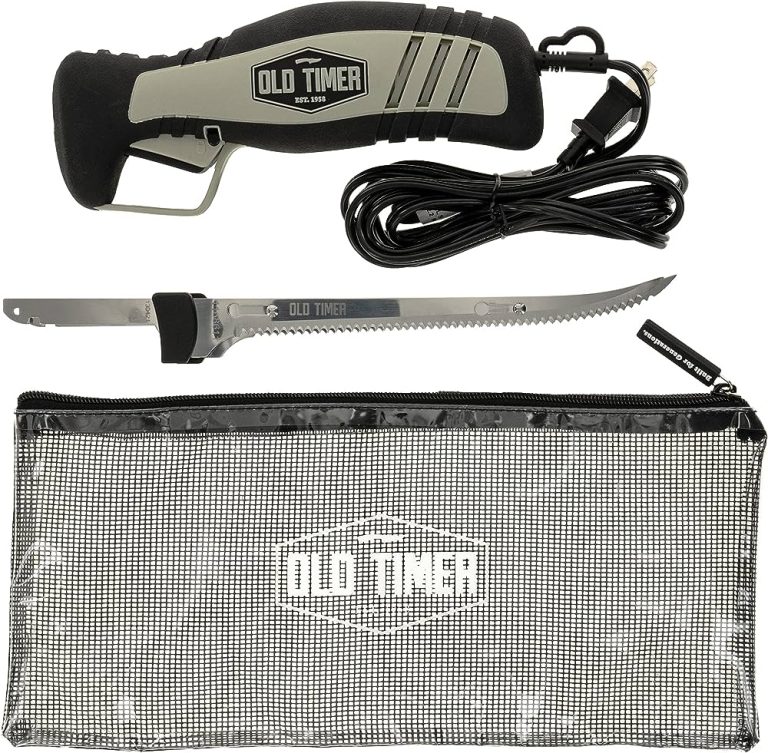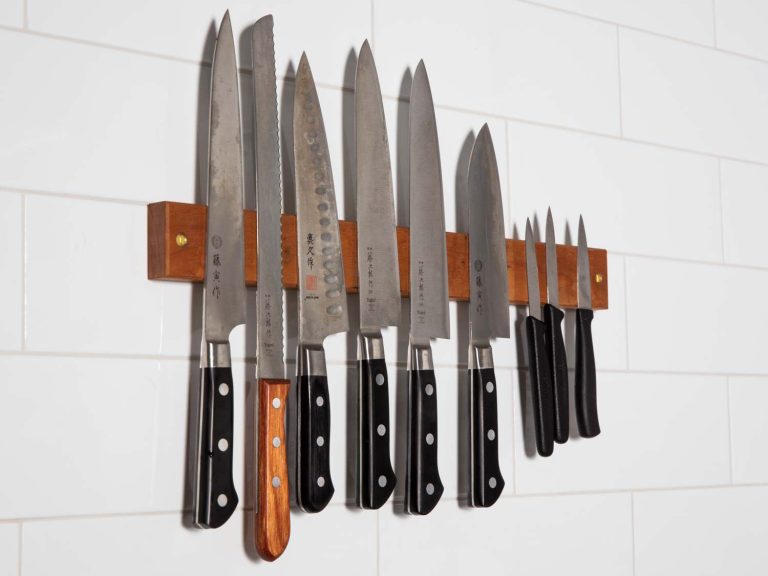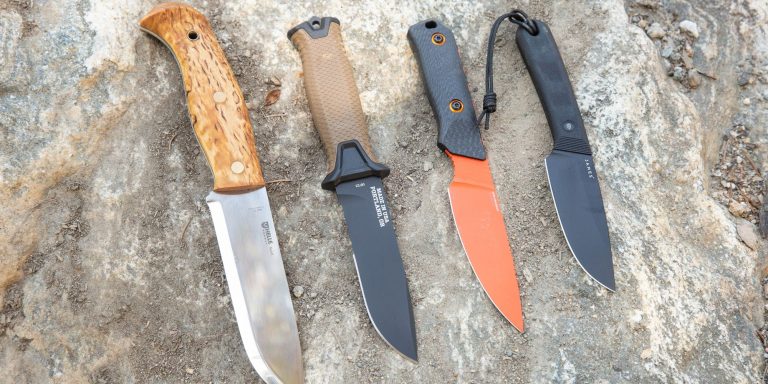Knife Maintenance Tips for Perfectly Sharp
To maintain a perfectly sharp knife, follow these tips: clean and dry the blade thoroughly after each use, store it in a knife block or sheath, avoid cutting on hard surfaces, and regularly sharpen the blade using a sharpening stone or honing rod. This article will provide more detailed information on how to properly care for your knives, ensuring they stay sharp and in optimal condition for years to come.
Proper knife maintenance is essential for maintaining a sharp cutting edge and maximizing the lifespan of your blades. Whether you’re a professional chef or a home cook, investing time in knife care can significantly enhance your culinary experience. From cleaning to storage, and from sharpening to honing, each aspect plays a crucial role in maintaining the edge of your knife.
This article will cover various knife maintenance tips that will help you achieve perfectly sharp blades, ensuring effortless and precise cutting every time you use them. Let’s dive in and explore the world of proper knife care.
Extend The Life Of Your Knife
Extend the Life of Your Knife
Keeping your knife in top-notch condition is essential for ensuring optimal performance and durability. Follow these knife maintenance tips to maintain a perfectly sharp edge:
- Clean your knife after each use: A simple rinse with warm water and mild soap will remove any residue or food particles. Make sure to dry it thoroughly to prevent rusting.
- Oil your knife regularly: Apply a thin coat of food-grade mineral oil to prevent corrosion and keep the blade lubricated. Focus on the blade and handle.
- Store your knife properly: Protect your knife from damage by storing it in a knife block, sheath, or a magnetic strip. Avoid keeping it in a drawer where it can come into contact with other utensils.
With regular maintenance, your knife will stay razor-sharp and serve you for years to come!
Improve The Performance Of Your Knife
Regularly sharpening your knife is crucial for maintaining its performance and achieving perfectly sharp results. It’s recommended to use a sharpening stone or a honing rod for this purpose. Additionally, selecting the right cutting board can significantly improve the lifespan of your knife. Opt for a board made of wood or plastic, as they are gentler on the blade compared to glass or marble. Avoid using your knife as a screwdriver or pry tool, as this can cause damage to the blade and affect its sharpness. Remember, a sharp knife is more efficient and safer to use in the kitchen. Taking these precautions will extend the life of your knife and ensure it performs at its best.
Ensure Safety While Using Your Knife
Proper knife maintenance is essential to ensure safety while using your knife. Keeping your knife sharp not only allows for better control but also reduces the risk of accidents. To achieve this, it is important to use the correct cutting technique. Always hold the handle of the knife, avoiding any temptation to hold it by the blade. This not only protects your fingers but also promotes better control and precision during use.
Removing Food Residue
When it comes to knife maintenance, removing food residue is an essential step to ensure a perfectly sharp blade. Start by rinsing your knife under warm water, which helps to loosen any stuck-on food particles. Use a sponge or soft brush to gently scrub away the residue, being careful not to scratch the blade. Afterward, dry your knife thoroughly with a clean cloth to prevent any moisture from causing rust or corrosion. Regularly cleaning your knife after each use will not only keep it in optimal condition but also prolong its lifespan. Remember, a clean knife is a sharp knife!
Removing Stubborn Stains
Maintaining the sharpness of your knife is essential for efficient and safe cutting. When it comes to removing stubborn stains, a simple solution of mild detergent and warm water works wonders. To start, soak your knife in the solution for a few minutes. This will help loosen the stains and make them easier to scrub away. Next, gently scrub the stains with a soft sponge, applying light pressure. Rinse the knife thoroughly to remove any residue and then dry it completely. Remember to handle the knife with care and avoid using abrasive materials that can damage the blade. By following these simple steps, you can effectively remove stubborn stains and keep your knife perfectly sharp.
Preventing Rust
Avoid soaking your knife for extended periods. This can lead to the formation of rust. Always remember to dry your knife thoroughly after cleaning it. Any moisture left on the blade can cause rust to develop. To protect the blade from moisture, it’s a good practice to apply a thin layer of oil. This creates a barrier between the blade and the elements, preventing rust and maintaining the knife’s sharpness over time.
Using A Sharpening Stone
Using a sharpening stone is one of the most effective methods for maintaining a perfectly sharp knife. To begin, wet the sharpening stone by immersing it in water for about 10 minutes. Next, hold the knife at a 15-20 degree angle against the stone. With light pressure, slide the knife across the stone in a sweeping motion, starting from the base to the tip of the blade. Repeat this process on the other side of the blade, maintaining the same angle and motion. It’s important to keep the stone wet throughout the process to prevent metal particles from clogging the stone. Regularly check the blade’s sharpness by gently running your finger along the edge. A sharp knife should easily catch your skin. Remember, practice makes perfect, so be patient and focus on maintaining consistent angles and motions.
Using A Honing Steel
Using a honing steel is an essential part of knife maintenance. To effectively use a honing steel, hold it vertically. Next, place the heel of the knife against the honing steel. Make sure to maintain a consistent angle and slide the knife down the steel. This action helps align and straighten the blade, ensuring optimal sharpness. Repeat the process on both sides of the blade for an even sharpening result. Regularly using a honing steel can prolong the lifespan of your knives and keep them performing at their best. Remember to clean the honing steel after each use for proper maintenance.
Using A Knife Sharpener
<p>Choosing the appropriate knife sharpener for your knife is crucial to ensure optimal results. Follow the manufacturer’s instructions carefully to make sure you are using the sharpener correctly. Before starting, ensure you hold the knife securely to avoid any accidents. Run the knife through the sharpener, applying appropriate pressure. Repeat this process until you achieve your desired level of sharpness. </p>
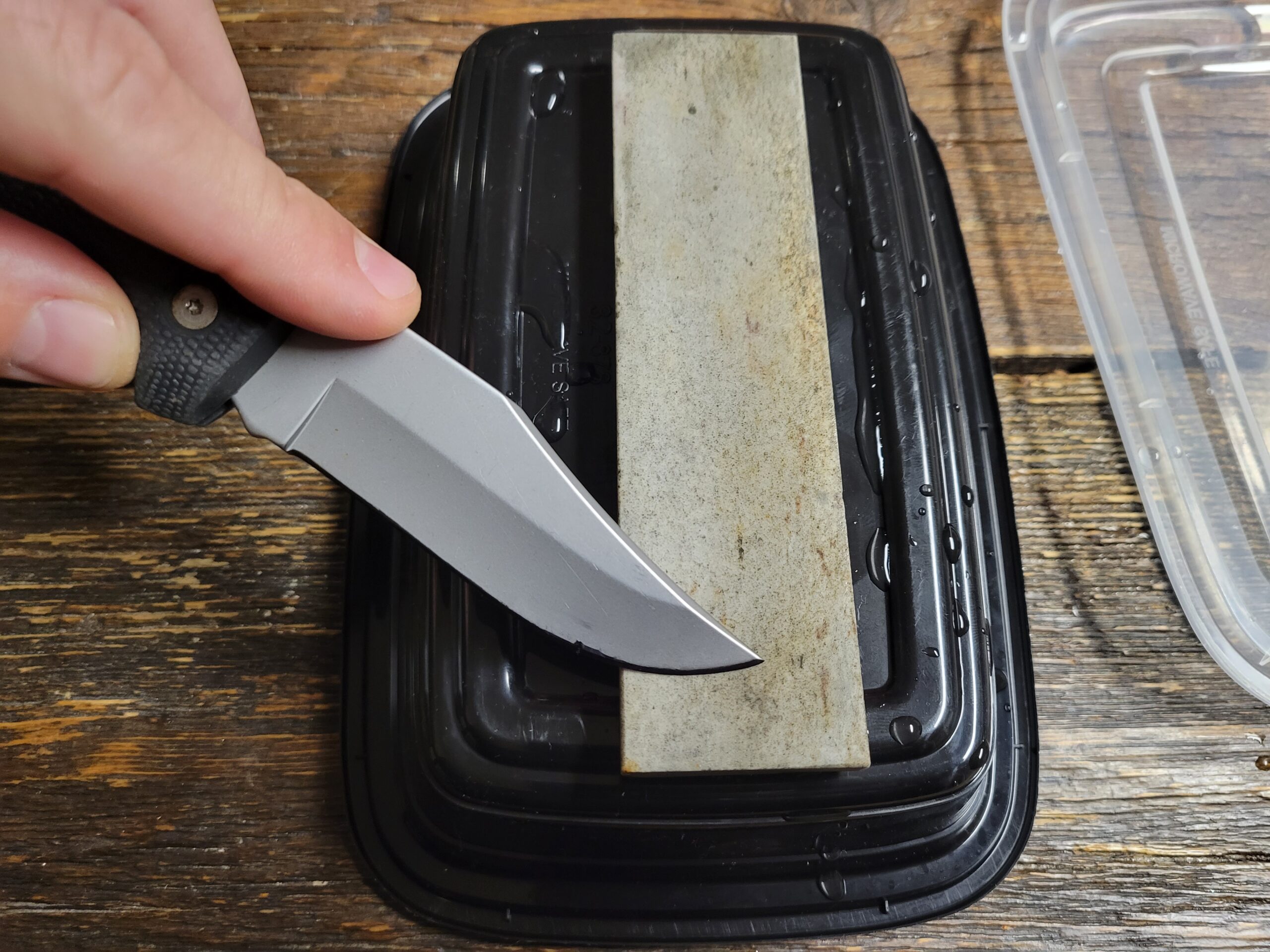
Credit: www.outdoorlife.com
Using A Knife Block
When it comes to **knife maintenance**, **using a knife block** is an effective way to store and protect your knives. When placing the knife in the block, make sure to position it in the designated slot with the **blade facing upwards**. This helps to prevent any accidents and ensures easy access to the knife when needed.
Avoid the temptation of placing other utensils or objects in the same slot as the knife. This can lead to **unnecessary wear and tear** on the blade and increase the risk of damage or injury. Keep the knife block dedicated solely to **knife storage** to maintain their sharpness and longevity.
Properly using a knife block not only helps with **organization** but also minimizes any potential hazards in the kitchen. Remember, **knife maintenance** goes beyond just sharpening. By following these simple guidelines, you can keep your knives perfectly sharp and in pristine condition for years to come.
Using A Magnetic Knife Strip
Using a magnetic knife strip is a practical way to organize and store your knives. Mount the strip on a wall or cabinet, ensuring it is securely attached. This not only saves valuable counter space, but also keeps your knives easily accessible.
Arrange your knives by size and type on the magnetic strip. This makes it easier to find the knife you need without rummaging through a drawer or knife block. Plus, it helps to keep the blades from dulling each other.
Make sure the blades are clean and dry before placing them on the strip to prevent any moisture buildup. Regularly wipe down the strip to remove any dust or debris that may accumulate over time.
In addition to organization and accessibility, using a magnetic knife strip can also help to extend the life of your knives. By keeping them properly stored and protected, you can maintain their sharpness and overall quality for longer.
Using Blade Guards Or Sheaths
Using blade guards or sheaths is an essential practice to protect your knife and ensure its longevity. To properly use a blade guard or sheath, slide the knife carefully into the provided guard or sheath, ensuring that the blade is fully covered and secured. This prevents accidental cuts or damage to the knife when it’s not in use.
Storing the protected knife in a drawer or knife roll is an excellent way to keep it safe and easily accessible. By storing it properly, you not only reduce the risk of accidents but also prevent the knife from dulling or becoming damaged. Make sure the storage area is clean and dry to maintain the knife’s sharpness and overall quality in the long run.
Conclusion
Remember, properly maintaining your knives is essential for keeping them sharp and ensuring their longevity. By following these simple knife maintenance tips, you can achieve perfectly sharp blades that make your cutting tasks a breeze. Regularly clean your knives to prevent the buildup of dirt and grime, and carefully dry them to avoid rusting.
Sharpen your knives using the appropriate tools like sharpening stones or honing rods. Store your knives in a safe and organized manner to prevent accidents and blade damage. And finally, always handle your knives with care and respect to maintain their sharpness and extend their lifespan.
With these easy-to-follow maintenance practices, you’ll be able to enjoy the precision and efficiency of sharp knives for years to come. So go ahead and implement these tips, and experience the joy of effortlessly slicing through anything with your perfectly sharp knives.

